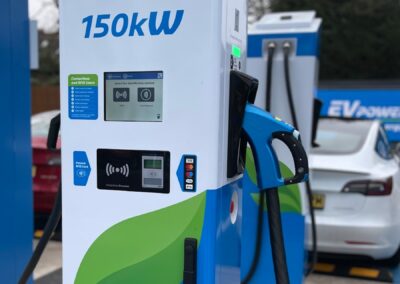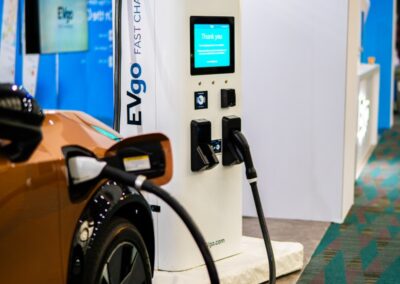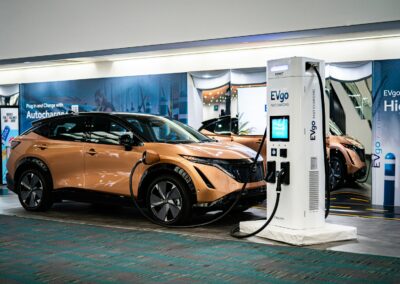Driving Urban and Rural Development through Strategic Collaborations
Public-private partnerships (PPPs) are instrumental in accelerating the deployment of EV charging stations in urban areas, particularly in rapidly developing cities like Riyadh and Dubai. By leveraging the strengths of both sectors, these collaborations can address the financial, logistical, and technological challenges associated with large-scale infrastructure projects. In urban centers where the demand for sustainable transportation is high, PPPs can facilitate the swift and efficient rollout of EV charging networks, ensuring that infrastructure keeps pace with the growing number of electric vehicles.
In Saudi Arabia and the UAE, where governments are committed to advancing smart city initiatives, PPPs provide a viable framework for integrating EV charging stations into urban planning. These partnerships can help align the interests of private investors and public entities, promoting a shared vision of sustainable urban mobility. By pooling resources and expertise, PPPs can overcome the barriers to entry for private companies, making it economically feasible to invest in EV charging infrastructure.
Moreover, PPPs can enhance the technological capabilities of urban EV charging networks. By collaborating with tech companies, cities like Riyadh and Dubai can integrate advanced technologies such as Artificial Intelligence (AI) and Blockchain into their charging infrastructure. AI can optimize the placement and operation of charging stations, ensuring efficient energy use and reducing downtime. Blockchain can provide secure and transparent management of energy transactions, enhancing the reliability and trustworthiness of the charging network.
Bridging the Gap in Rural Areas
While urban areas benefit significantly from PPPs, their impact is equally crucial in rural regions. Deploying EV charging stations in rural areas presents unique challenges, including lower population density, limited existing infrastructure, and higher costs. However, PPPs can bridge this gap by combining public funding with private sector innovation and efficiency. In Saudi Arabia and the UAE, where rural connectivity and development are national priorities, PPPs can play a pivotal role in extending EV charging networks beyond city limits.
Government incentives and subsidies can make rural EV charging projects more attractive to private investors. By reducing financial risks and offering long-term support, public entities can encourage private companies to participate in rural development projects. This collaborative approach ensures that the benefits of sustainable transportation reach all parts of the country, promoting equitable development and reducing regional disparities.
Furthermore, PPPs can leverage renewable energy sources to power rural EV charging stations. By integrating solar and wind energy into the charging infrastructure, these projects can become more sustainable and cost-effective. In the vast and sunny landscapes of Saudi Arabia and the UAE, renewable energy provides a viable solution for powering rural EV networks. This approach not only supports environmental goals but also enhances the economic viability of rural charging stations.
Leadership and Change Management in PPP Initiatives
Effective leadership and change management are critical for the success of PPP initiatives in the EV charging sector. Business leaders and government officials in Saudi Arabia and the UAE must champion these partnerships, fostering a culture of collaboration and innovation. Executive coaching services can equip leaders with the skills needed to navigate the complexities of PPPs, focusing on strategic planning, stakeholder management, and effective communication.
Change management strategies are essential for aligning the interests and efforts of diverse stakeholders. Clear communication, continuous engagement, and adaptive planning are crucial for overcoming resistance and ensuring a smooth implementation process. In dynamic environments like Riyadh and Dubai, where rapid development is the norm, effective change management can significantly enhance the success of PPP projects.
Management consulting firms can provide valuable support in the planning and execution of PPP initiatives. Consultants can conduct feasibility studies, develop regulatory frameworks, and design efficient project management processes. By leveraging their expertise, Saudi Arabia and the UAE can ensure that PPP projects are well-coordinated, economically viable, and aligned with national development goals.
#EVCharging #PublicPrivatePartnerships #UrbanDevelopment #RuralInfrastructure #SaudiArabia #UAE #Riyadh #Dubai #AI #Blockchain #BusinessSuccess #ManagementConsulting #ExecutiveCoaching























